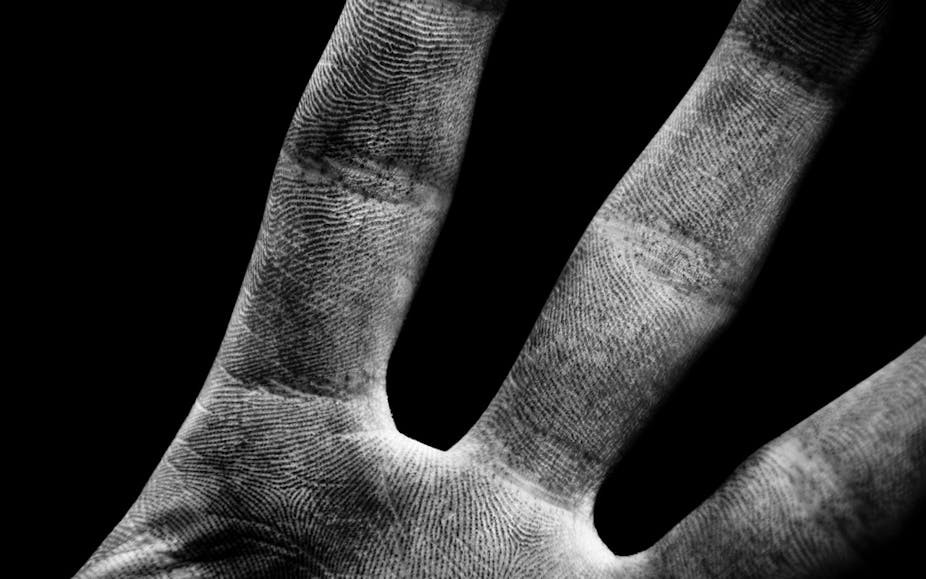“Truth is so precious that she should be attended by a bodyguard of lies.”
Winston Churchill’s famous words were uttered during the war against the Nazis and referred to Operation Bodyguard, a deception that was intended to mislead the German high command about the date and location of the invasion of Normandy. Given the context, few would criticise Churchill’s statement.
Now imagine Bernie Madoff uttering the same words in defense of his acrobatic Ponzi schemes. Few would accept such glaring sophistry.
Where does Dr Peter Gleick’s revelation that he lied to a conservative think tank to access climate change documents fit on this spectrum?
This question gets us right to the heart of a central issue in moral cognition and philosophy: Are there immutable moral rules — such as “thou shall not lie” — or does morality legitimately involve a trade-off between competing ethical imperatives that includes consideration of the ultimate outcomes of one’s actions?
If there are immutable moral rules then there is little daylight between Churchill and the hypothetical Madoff — both violated a moral axiom by admitting the possibility that lying may be justifiable.
By contrast, if morality involves a balancing of ethical costs and benefits, then Churchill’s deception of the German high command quite plausibly was a moral act that quickened the pace of battle, thus hastening the defeat of the Nazis and the liberation of Dachau.
The Allies’ deception paled in comparison to the lives saved.
History is full of such moral balancing acts.
When Daniel Ellsberg released the classified Pentagon Papers in 1971 he undoubtedly broke the law. However, when the papers revealed that four consecutive Presidents, from Truman to Johnson, had consistently misled the American public about their actions in Vietnam, the illegality of Ellsberg’s action paled in comparison to the good that arose from informing the public of their leaders’ deceptions.
Ultimately, all charges against Ellsberg were dismissed, and the Pentagon Papers arguably helped accelerate the move towards peace in Vietnam.
What are we to make of the latest moral balancing act involving the leaked Heartland documents?
On Valentine’s Day an anonymous source emailed documents to various journalists that were leaked from the Heartland Institute, a free-market think tank.
According to its 2010 Prospectus, Heartland opposes “… junk science and the use of scare tactics in the areas of environmental protection and public health”.
Opposition to “junk science”? What junk science?
According to the Heartland Institute, “junk science” is the research that has linked tobacco to lung cancer and junk food to obesity. It is also, of course, the “junk science” known as climate research.
The leaked documents put names and dollar figures to Heartland’s opposition to “junk science” and revealed that it funded climate denial in at least three countries — the US, New Zealand and Australia. Well-known so-called “sceptics” were found to have been pay-rolled by the Institute, often contrary to those individuals’ earlier denials of funding by vested interests.
George Monbiot summed up the implications of the leaked information succinctly: “This is plutocracy, pure and simple.”
Then yesterday, another revelation.
Climate scientist Dr Peter Gleick wrote on the Huffington Post that he obtained the documents from Heartland by using someone else’s name, and then passed them on to journalists, thereby triggering an avalanche of exposure of the Heartland denial machine.
Is Gleick another Churchill or Ellsberg?
Legal issues aside, how does his subterfuge compare to the potential public good that has resulted from the documents’ release?
Many philosophers who study ethics agree that it is important to consider the consequences of one’s actions in a moral dilemma to come to an acceptable judgment. Rather than relying on moral strictures, this “consequentialist” approach argues that the morality of an action is evaluated by whether it brings about the greatest total well-being.
This reasoning is mirrored in the cognitive laboratory, where people’s responses are also often informed by the consequences associated with competing paths of action (the data are quite complex but it seems safe to conclude that most people are sensitive to weighting the outcomes of competing actions rather than being exclusively entrenched in immutable moral rules).
Does this mean there is an ethical imperative to consider Gleick to be another Daniel Ellsberg?
No. But it does mean that one’s ethical concerns should consider competing actions and outcomes rather than focusing on an individual’s chosen action in isolation.
Gleick has apologised for his use of subterfuge. His actions have violated the confidentiality of a think tank but they have also given the public a glimpse into the inner workings of the climate denial machine.
Had he not done so, no one’s confidentiality would have been violated, but then the public would have been kept guessing about the internal workings of one of the world’s most notorious serial impersonators of science. The Heartland Institute takes pride in its chimerical pseudo-“scientific” conferences and it is allied with “scientific” work that denies that mercury is poisonous.
In the real world, mercury is poisonous. In the real world, the number of weather-related natural disasters has tripled in the last 30 years, and the World Health Organization estimates that 150,000 people are already dying annually from the effects of climate change. In reality, many of the IPCC’s 2007 predictions have been found to be overly conservative rather than alarmist. And the latest IPCC report has reiterated the risks we are facing in the all-too-near future if we delay action on climate change.
Revealing to the public the active, vicious, and well-funded campaign of denial that seeks to delay action against climate change likely constitutes a classic public good.
It is a matter of personal moral judgment whether that public good justifies Gleick’s sting operation to obtain those revelations.

